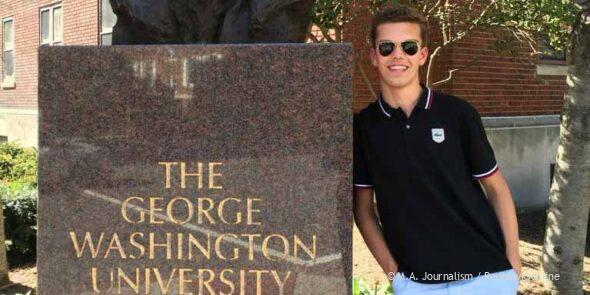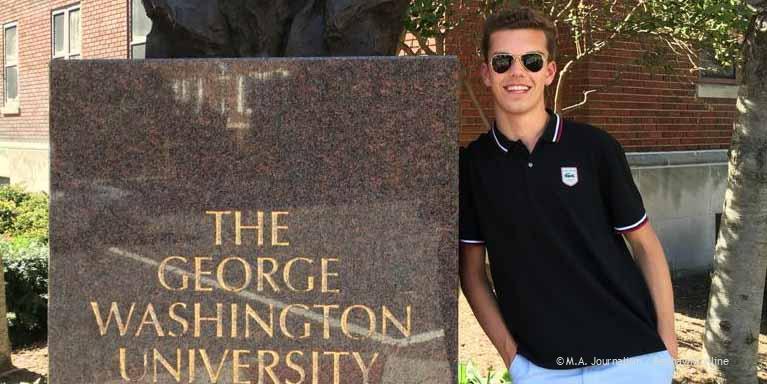Student activism appears to be more prevalent in college, “a breeding ground” where “this activism, this passion can flourish” and students can express beliefs
The large rock in the center of the campus courtyard bore the message “Black Lives Matter.” A message written in response to recent shooting incidents involving black men and police officers. A message of frustration and discontent. A message that was painted over.
After only two days, the rock was repainted with the words “Blue Lives Matter” and “Black Lives Matter = Racist.” These were statements that led to protests and rallies on Sept. 28 at Bethel University in St. Paul, where the rock had been painted multiple times with controversial messages. To express their reactions, students held protests, made signs and gathered together as the rock was painted over again with the message “Us for Us,” a message for all individuals who “call Christ by name,” as written by Callie Schmidt in the Oct. 6 edition of Bethel’s newspaper, The Clarion.
This is an instance of activism, or the way individuals express their opinions and campaign for what they believe in. In light of the 2016 Presidential Election and other current events in America, such as the Black Lives Matter movement, instances of protests and campaigns for various causes occur regularly on many college campuses.
Class of 2016 Minnehaha alum Luke Frazier now attends The George Washington University in Washington D.C. and is majoring in international affairs. Frazier commented on the social atmosphere on his college campus.

Alum Luke Frazier (’16) now attends The George Washington University in D.C. Photo courtesy of Luke Frazier.
“People are more well read and more up to date on current events in college,” said Frazier. “I also think that people have formed more opinions because they are more independent.”
According to Princeton Review in 2016, The George Washington University was named the most politically active school in the nation for the fourth year running, which Frazier has definitely seen evidence of during his time on campus.
“I was walking down the hall one night during the first or second presidential debate and I think every room that I walked past had the debate on,” he said. “People are just really tuned in to politics and different social issues in general, and if I ever have a conversation with somebody here, they are usually pretty well read up on whatever we are talking about.”
Editor in Chief of Bethel’s The Clarion, senior Maddy Simpson also has experienced the activist culture on her college campus, something that rose to the surface during the series of events at the end of September revolving around the painting of Bethel’s rock.
“I think the biggest time that I saw student activism was during the racial tension that happened a few weeks ago with our coverage of the rock,” Simpson said, who is a double journalism and business finance major. “There were a lot of protests that happened, and Bethel had a really quick response but still allowed these protests to happen.”
These stark examples of activism contrast with the atmosphere in many high schools, where the environment is more structured and controlled, Frazier said.
“In high school a lot of people have the views of their parents and their older siblings and I think that definitely is a major factor of why it is different,” he said. “People have the freedom to express what they believe in more so in college than in high school, and that is just how it is in general, it’s not specific to Minnehaha.”
Simpson also reflected back on her high school experience.
“I didn’t ever really see student activism in my high school. But, I think the culture of today allows students to speak out more on things they are passionate about. Even since I was in high school and the four years since I’ve left high school, I think the culture has shifted.”
Having not experienced student activism in high school, Simpson pointed out why there might be a gap between activism in high school and in college.
“I think as people get older, especially in college, a lot of times that’s where a lot of your ideas are set in stone. You solidify your world view in college, and because of that I think people feel more comfortable talking about things they are passionate about.”
Frazier also talked about why student activism can thrive on college campuses.
“You are surrounded by all these new ideas, new people,” he said, “you have this new freedom, new independence and people really take advantage of that and they decide, ‘This is the time for me to try things out, to try to discover things and do things.’ That just creates an environment where this activism, this passion can flourish. College campuses in general are a breeding ground for that.”
Though student activism is often more common on college campuses, students from all stages of life have the opportunity to make their beliefs heard in whatever environment they are in. In both Simpson and Frazier’s opinions, student activism can make a difference in an individual’s community.
Simpson spoke in regard to the events regarding Bethel’s rock.
“It led to a lot of discussion about the point of student activism…a lot of discussion about racial tension on campus, but it also led a lot of people to think about ‘We have this happen and we have all these protests, but what’s the next step and what can people do?’ [Student activism] led to action, because people were looking at the situation and thinking ‘What’s the next step?'”
Frazier agreed that student activism can lead to discussion and change.
“People do make a pretty big difference and I think you start to realize that once you come to college,” he said. “What you do does have a pretty big impact on whatever you are trying to fix or fight for.”

